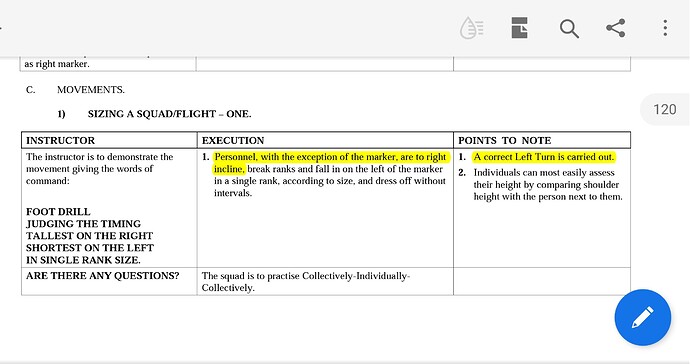About time.
I think you mean “judging the time, about…” ![]()
How long because with the amount of confusion surrounding drill between squadrons it’s needed urgently. Hopefully people will actually read it and ammend any drill malpractices on their squadrons and put an end to all the confusion when more than one squadron is doing drill together.
More like “I can’t believe it took this long?”
It’s not really that much confusion, let’s be honest. It’s 30 seconds of awkwardness when it happens and then everybody adapts and moves on.
There are bigger fish to fry.
I see your point, but agree with @GrandMaster_Flush to an extent. Problems only exist when different squadrons get together which is rarely at a critical moment.
Also, urgency of roll-out is irrelevant when there are still units teaching TLV - which was thrown out about 12 years ago!
Yes I may have exaggerated but still, even the little things are all different between squadrons. Many squadrons (as you’ve stated) still use TLV. Had one person recently tell me that there was a “new” halt and proceeded to show me the actual normal halt. Beforehand they had been moving their arms to the shun on the first “one”.
It’s always been thus. I recall when we had ACP19 people coming back from camp to show us the new ‘updates’ when the manual was never updated as far as I can tell, it was just the gloss that that camps DIs put on things.
And so much of what we teach isn’t in the AP, because we bastardise various different sections to create things which don’t exist, like the form up section, or removing headdress with a beret.
Or just flat out confusion, like people saying Markers don’t do eyes left/right, because they’ve confused Markers with Guides.
Unfortunately, here, an arm swing is completed on both the full and half pace, with arms only checked for the “stamp”.
Ahhh or did you mean they checked arms immediately?
The timings for the halt are “one one two” they checked their arms in on the first or second one (cannot remember) yet they are checked in on the two.
Yes whilst looking at ACP19 there was a cautionary for the about turn at the halt. Also I like how the commands are laid out in a table, I hope the new AP818 revision (whenever it comes) has an annex like this to make things clearer.
Except we’re usually not using guides, so that adaptation makes sense.
It’s pretty common to describe 818 as “more what you’d call…guidelines”, because they are written and laid out for a perfect world scenario with a lovely, large parade square to bash around on. The execution of individual movements shouldn’t be altered, but the implementation is very often adapted to local needs - although sometimes more through desiring than requiring, which is a pain.
Misunderstood you initially, so apologies.
But when we’re largely doing competition drill, I always thought it dumb to teach cadets NOT to do the movement. It teaches laziness for the tall cadets too, although it is quite amusing to see them realise on camp they’re not the tallest and forget to do the move until a few paces in.
Very true, we use a relatively small car park with a very uneven surface. A lot of commands have to be called rather quickly and so the four paces on the cautionary with an “about 4 paces” pause between the cautionary and executive is more like 2 paces combined.
I think 818 is really clear… Its hangovers from dinosaur publications no longer in use that make it confusing
To add - the Cere chapters can be a bit confusing
It may be clear if you’re willing to read it all and search through the clutter of pages. But some sort of glossary of commands broken up into the three parts would make things clearer and quicker to access for actually calling commands.
Yeah theres the odd faux pas as per every doc in this org
I see the contradiction there, the only thing I can conjure up is that everyone falls in line with the marker whilst facing the marker, halts and then does a left turn to go into line.
(of which never happens, sizing a squad on my sqn always ends up in a confusing mess of people walking around and not knowing what’s happening)
